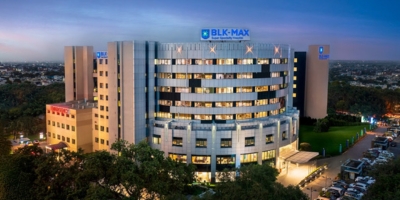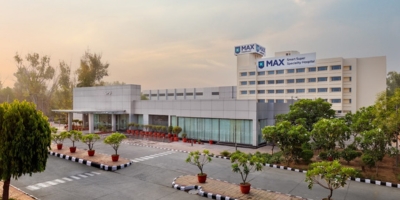Surgery for Kidney Cancer in India: Hospitals, Costs, & Surgeons
Discover surgery for kidney cancer in India at low costs. Find the best hospitals and renowned surgeons in this easy guide.
Get treated by expert oncologists today!
What Is the Cost of Surgery for Kidney Cancer in India?
The cost of surgery for kidney cancer in India is around $7000, while it starts at around $26,500 in the US.
Surgical costs usually include surgeon fees, hospital stays, medications, other consumables, and food. The cost can rise if other treatments are needed before or after surgery.
| Cost of kidney cancer surgery in India (in USD) | Cost of kidney cancer surgery in the USA (in USD) |
| $7000 | $26,500 to $40,000[1] |
Cost of Alternative Treatments for Kidney Cancer
This treatment involves using drugs that target the actively-dividing cancer cells.
This treatment uses high-energy radiation to destroy cancer cells. The type of radiation therapy depends upon the spread of the cancer. It may be used before or after surgery, alone or with chemotherapy (chemoradiation).
This treatment involves using drugs that stimulate the immune system to act against cancer cells. If there is a high risk of cancer recurring after the tumor is surgically removed, immunotherapy may be required for kidney cancer.[2]
Know the complete guide to Immunotherapy for Cancer in India.
|
Treatment |
Cost of Treatment in India (in USD) |
Cost of Treatment in the USA (in USD) |
| Chemotherapy | Starts at $250 - $300 | Around $10,000[3] |
| Radiation therapy | $4500 - $6500 | $20,000 to $40,000[4] |
| Immunotherapy | $85,000 (for CART cell therapy) | $400,000[5] to $700,000[6] |
Procedure: Surgery for Kidney Cancer in India
Surgery is the primary treatment for localized kidney cancers. The surgeon may either remove the tumor with some surrounding healthy tissue or the entire kidney.
Surgery is also performed for advanced kidney cancer to relieve symptoms like pain or blood in urine.
Types of Surgery
Depending upon the stage and grade of kidney cancer, surgery can be of three types:
A partial nephrectomy is performed when the tumor is less than 10 cm across and is not present in the central part of the kidney.
When a major part of the kidney or kidneys is affected, it is entirely removed either by open surgery, laparoscopic surgery, or robot-assisted laparoscopic surgery. If the nearby lymph nodes are also affected, they are removed during the surgery.
When the cancer has spread outside the kidney to other parts of the body (metastasized), palliative nephrectomy may be performed to relieve symptoms like pain or blood in the urine.
Want to know more about surgery as an option for other cancers, such as liver cancer? Read our blog on Surgery for Liver Cancer in India.
Precautions and Preparations Before the Surgery
You will also meet your healthcare team, who will conduct a pre-assessment around a week or two before surgery.
Before undergoing surgery for kidney cancer, you will need to undergo a few tests to ensure you are fit for the procedure. These include
- Blood and urine tests
- Electrocardiogram
- A DMSA scan to check how well your kidneys are working
You must also quit smoking before undergoing this procedure.
Recovery After Kidney Surgery
The time for recovery after kidney cancer surgery depends upon the type of surgery you have.
|
Type of surgery |
Duration of Hospital Stay |
| Keyhole (Laparoscopic) Surgery | 2 to 5 days |
| Open surgery | 5 to 7 days |
- Feeling exhausted for about six weeks after surgery is normal. Most people recover in around 12 weeks.
- Your doctor will tell you when you can resume daily activities and exercise and when you can resume work. Follow their recommendation.
- Keep your follow-up appointments, as they allow your surgeon to see how you are doing and whether you are healing well.
Side Effects of Kidney Surgery
A surgical procedure always carries a small risk of side effects or complications. The most common complications following kidney cancer surgery are[7]
- Wound infection
- Bleeding
- Blood clot formation
- Chest infection
If you feel unwell, experience unusual bleeding, or notice a swelling in your arm or leg, inform your doctor immediately.
Overview of Kidney Cancer
Kidneys are an integral part of the urinary system. They filter waste products out of the blood and eliminate them as urine.
When cancer cells outgrow the kidneys, they can penetrate surrounding tissues and spread to other organs.
When cells in the kidney begin to grow abnormally or uncontrollably, it gives rise to kidney cancer.
Kidney cancer is the 14th most common cancer worldwide. It is more common in men than women.[8]
Surgery is usually the main treatment for kidney cancer. It may be the only treatment needed in individuals with early stages of cancer.
It is the preferred treatment when the cancer is limited to the affected kidney and has not spread to other parts of the body.
Your surgeon and healthcare team will determine the right type of surgery based on the characteristics of your cancer.
Surgery may also be performed in the advanced stages of kidney cancer to relieve symptoms.
Surgery for localized or early stages of kidney cancer is an effective treatment. It removes the tumor cells.
The surgeon usually removes some healthy tissue surrounding the tumor to prevent cancer cells from being left behind, reducing the chances of recurrence.
If your doctor feels you have a high risk of cancer returning, they may recommend additional treatments like radiation therapy, chemotherapy, or immunotherapy.
Global Perspective on Kidney Cancer
A recent study published in The New England Journal of Medicine stated - that using the immunotherapy drug pembrolizumab improves the overall survival among patients with clear-cell renal cell carcinoma who are at high risk for disease recurrence after nephrectomy (surgery to remove kidneys).[9]
With the Drug Control General of India (DCGI) approving KEYTRUDA (pembrolizumab) for renal cell carcinoma (kidney cancer) in India, patients from all over the world can now avail of this treatment at affordable costs.[10]
What is the Success Rate of Surgery for Kidney Cancer in India?
The 5-year survival rate of kidney cancer in India is 77%.[11] The survival rate is higher for early stages or localized kidney cancer compared to the metastatic or advanced stages.
Best Hospital for Kidney Cancer Treatment in India.

The JCI-accredited facility is one of the largest private clinics in Delhi and ranks among the top 10 multi-specialty hospitals.
As part of the Max Healthcare Group, a leading provider in India, it caters to both domestic and international patients.
The hospital specializes in cancer treatment, bariatric surgery, and cardiology, using advanced equipment that meets European hospital standards.
- 60+ Years of Experience
- JCI Accredited
- NABH Accredited
- Advanced technology medical oncology like immunotherapy, targeted therapy and chemotherapy
- Leading medical oncology specialists with organ-specific expertise
- Round-the-clock critical care with OPD services, which are designed for an organ-specific approach

With advanced diagnostic units, Max Smart Super Speciality Hospital, Saket, is a renowned 250-bed hospital in South Delhi, India.
It has 12 modular theatres, emergency care, Tesla MRI and Cath Labs and 50 critical beds. The hospital offers Cardiac Sciences, Orthopaedics, Urology, Neurology, Paediatrics, Obstetrics, and Gynaecology.
With 300+ specialists working here, it is a highly sought-after healthcare centre.
- NABH Accredited
- 300+ Doctors
- 22+ Departments
Max Healthcare is a leading uro-oncology center in India that is at the forefront of pioneering complex surgeries like robotic/open radical nephrectomy with inferior vena cava thrombectomy performed for advanced kidney cancer cases. This hospital is:
- Revolutionizing CART cell therapy, which has been found to improve survival rates after surgery in patients with advanced kidney cancer
- Certified by Quality and Accreditation Institute (AQI)
- Oncology-related clinical activities are supported by world-class clinical experts in pathology, radiology, and anesthesia.
Best Surgeon for Kidney Cancer in India.

Dr. Pramod Kumar Julka
Dr. P.K. Julka is a renowned oncologist, author, and cancer researcher. Dr Julka was awarded the Padma Shri in 2013, India's fourth highest civilian honor.
He has also received the "Leading Scientist of the World 2005" award from the International Biographical Centre of Cambridge.
He has been a WHO fellow at MD Anderson Hospital in Houston, Texas, and Long Beach Memorial Cancer Centre in California, US.
Educación
Maulana Azad Medical College, New Delhi, India
Membresías
- American Society of Clinical Oncology (ASCO)
- National Advisory Committee of Global Cancer Summit

Dr. Surender Kumar Dabas
Dr. Surender Kumar Dabas is the Head of the Department of Surgical Oncology and Robotic Surgery at BLK Hospital.
He is also the Vice President of the International Guild of Robotic & Endoscopic Head & Neck Surgery.
A pioneer in Robotic Surgical Oncology in India, Dr. Dabas is also an international mentor for robotic oncological surgeries.
He has performed over 20,000 complex cancer surgeries, including 2,500 robotic procedures.
Educación
National Board of Examination, India
Membresías
- Indian Association of Surgical Oncology (IASO)
- Robotic & Endoscopic Head - Neck Surgeons (IGREHNS)
- International Guild of Robotic & Endoscopic Head & Neck Surgery

Dr. Harit Chaturvedi
Dr. Harit Chaturvedi is the Chairman of Max Institute of Cancer Care.
He is also the Director of Surgical Oncology at Max Super Speciality Hospital, Saket.
He leads a team of over 80 oncologists and has performed surgeries at live workshops.
Dr. Chaturvedi has also supported cancer awareness and anti-tobacco campaigns for over a decade.
Educación
Dr. M.G.R Medical University, Chennai, India.
Membresías
- Association of Surgeons of India
- Indian Association of Surgical Oncologists
- Association of Breast Surgeons of India (ABSI)
Is Surgery for Kidney Cancer Safe in India?
Yes, surgery for kidney cancer is safe in India, with the 5-year survival rate for patients who underwent surgery for kidney cancer being 77%.
Why MTC Partners for Kidney Cancer Surgery?
MTC partners offer the best-in-class treatment for kidney cancer in India.
- Our partners are at the forefront of innovation and are one of the first hospitals to offer HIPEC (Hyperthermic Intraperitoneal Chemotherapy).
- Our oncology team is led by an expert team of doctors with over three decades of experience.
- Our partner centers offer a wide range of advanced treatments, including kidney transplants.
- One of our partners is Asia’s first hospital to introduce the CyberKnife VSI technology.
Conclusion
Surgery for kidney cancer in India offers effective treatment with a high survival rate.
Get treatment from skilled surgeons in top hospitals. Contact us for a free consultation!
FAQs
If the kidney cancer is limited to one kidney or has spread to just a few spots outside it, surgery can help remove the tumor entirely.
In some cases, the affected kidney, lymph nodes, and nearby healthy tissue may be removed to prevent the spread of cancer. This prevents the recurrence of kidney cancer.
Most people are born with two kidneys, but you can live a normal life with one functional kidney.
If you have had a nephrectomy (surgery to remove a kidney), you can lead a normal life.
You will require close monitoring of the remaining kidney to ensure it works optimally.
If you have had both kidneys surgically removed, you may need to undergo dialysis or a kidney transplant to lead a normal life.
Surgery is usually the most effective treatment for kidney cancer that is localized and has not spread to other parts of the body.
If there is a risk of recurrence (chance of the cancer coming back), immunotherapy may be recommended post-surgery.[12]
References
- The American Journal of Managed Care: Cost of Care for Malignant and Benign Renal Masses
- Cancer Research UK: Treatment options for kidney cancer
- Advances in Pharmacoepidemiology & Drug Safety: Cost-effectiveness Considerations of Individualized Cancer Chemotherapy
- Journal of Oncology Practice: Cost-Effectiveness Analysis of Stereotactic Body Radiation Therapy Versus Intensity-Modulated Radiation Therapy: An Emerging Initial Radiation Treatment Option for Organ-Confined Prostate Cancer
- Developmental Therapeutics- Immunotherapy: High Cost of Chimeric Antigen Receptor T-Cells: Challenges and Solutions
- Frontiers in Immunology: The future of affordable cancer immunotherapy
- Macmillan Cancer Support: Surgery for kidney cancer
- World Cancer Research Fund International: Kidney cancer statistics
- ESMO: Adjuvant Pembrolizumab Improves Overall Survival Among Patients with Clear-Cell Renal Cell Carcinoma Who Are At Increased Risk for Disease Recurrence After Nephrectomy
- Business Standard: DCGI approves MSD India's drug KEYTRUDA for breast cancer in adult patients
- Indian Journal of Cancer: Detailed study of survival of patients with renal cell carcinoma in India




